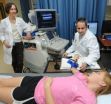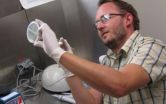(Press-News.org) When faced with scandal or wrongdoing, corporations should stick to the facts in their post-crisis messaging, according to a new study from researchers at Rice University, the University of Georgia and the University of Maryland – College Park.
The study, "Managing the message: The effects of firm actions and industry spillovers on media coverage following wrongdoing," examined quarterly media coverage of 45 U.S. public toy companies a 10-year period and over 5,500 press releases generated by the companies during that time.
Almost half of the companies surveyed conducted a toy recall (for a total of 56 million toys associated with thousands of reported injuries or incidents) during the study period. Those recalls were indications of a firm's "wrongdoing," defined as behaviors that placed stakeholders at risk or violated consumer expectations for standards of conduct.
The research revealed that the worse a company's "wrongdoing," the more damaging media coverage it received. It also showed a spillover effect: Many of the companies that were not associated with toy recalls suffered from negative media backlash aimed at the entire industry, making them "guilty by association."
But the key to managing the crisis is different depending on whether a corporation was directly to blame or "guilty by association," according to lead study author Anastasiya Zavyalova, assistant professor of strategic management in Rice University's Jones Graduate School of Business.
"If your corporation is directly to blame, it's best to stick to the facts," Zavyalova said. "A media strategy that shares substantive information about how you're planning to address the problem can help change the tone of the media coverage."
However, for companies that are "guilty by association," it's better to have communication that takes attention away from the scandal and puts the focus on how the corporation differs from others in the industry. These ceremonial press releases included information about company plans such as starting a foundation, engaging in a charity event, etc.
"For companies not directly to blame that have suffered negative press, this type of communication helps shift attention from the media backlash," Zavyalova said.
Zavyalova noted that during times when more than one company was conducting a recall, media coverage was somewhat less negative for individual wrongdoing firms.
"It goes to show that there is some 'safety in numbers,'" she said.
###
Follow Rice News and Media Relations via Twitter @RiceUNews
Related Materials:
Study: http://amj.aom.org/content/55/5/1079.full.pdf+html
Rice News video: http://www.youtube.com/watch?v=TyKOmR4hp9A&feature=youtu.be
Anastasiya Zavyalova bio: http://business.rice.edu/Anastasiya_Zavyalova/
Photo Credit: Rice University
Located on a 300-acre forested campus in Houston, Rice University is consistently ranked among the nation's top 20 universities by U.S. News & World Report. Rice has highly respected schools of Architecture, Business, Continuing Studies, Engineering, Humanities, Music, Natural Sciences and Social Sciences and is home to the Baker Institute for Public Policy. With 3,708 undergraduates and 2,374 graduate students, Rice's undergraduate student-to-faculty ratio is 6-to-1. Its residential college system builds close-knit communities and lifelong friendships, just one reason why Rice has been ranked No. 1 for best quality of life multiple times by the Princeton Review and No. 2 for "best value" among private universities by Kiplinger's Personal Finance. To read "What they're saying about Rice," go to http://tinyurl.com/AboutRice.
Corporate wrongdoers should stick to the facts in post-crisis message
2012-11-26
ELSE PRESS RELEASES FROM THIS DATE:
Risk aversity visible in the brain
2012-11-26
Some people live their lives by the motto "no risk - no fun!" and avoid hardly any risks. Others are clearly more cautious and focus primarily on safety when investing and for other business activities. Scientists from the University of Bonn in cooperation with colleagues from the University of Zurich studied the attitudes towards risk in a group of 56 subjects. They found that in people who preferred safety, certain regions of the brain show a higher level of activation when they are confronted with quite unforeseeable situations. In addition, they do not distinguish as ...
Impaired blood vessel function found in cystic fibrosis patients
2012-11-26
AUGUSTA, Ga. – The first evidence of blood vessel dysfunction has been found in a small cohort of generally healthy young people with cystic fibrosis, researchers report.
"Even though the lung function in these kids is fine at this point, there is evidence of vascular dysfunction and exercise intolerance," said Dr. Ryan A. Harris, clinical exercise physiologist at the Medical College of Georgia and Institute of Public and Preventive Health at Georgia Health Sciences University. "We think this blood vessel dysfunction could be contributing to their exercise intolerance, ...
Microbial 'missing link' discovered after man impales hand on tree branch
2012-11-26
It all started with a crab apple tree.
Two years ago, a 71-year-old Indiana man impaled his hand on a branch after cutting down a dead tree. The wound caused an infection that led scientists to discover a new bacterium and solve a mystery about how bacteria came to live inside insects.
On Oct. 15, 2010, Thomas Fritz, a retired inventor, engineer and volunteer firefighter, cut down a dead, 10-foot-tall crab apple tree outside his home near Evansville, Ind.
As he dragged away the debris, he got tangled in it and fell. A small branch impaled his right hand in the fleshy ...
Water resources management and policy in a changing world: Where do we go from here?
2012-11-26
Visualize a dusty place where stream beds are sand and lakes are flats of dried mud. Are we on Mars? In fact, we're on arid parts of Earth, a planet where water covers some 70 percent of the surface.
How long will water be readily available to nourish life here?
Scientists funded by the National Science Foundation's (NSF) Dynamics of Coupled Natural and Human Systems (CNH) program are finding new answers.
NSF-supported CNH researchers will address water resources management and policy in a changing world at the fall meeting of the American Geophysical Union (AGU), ...
Burning more calories is easier when working out with someone you perceive as better
2012-11-26
MANHATTAN, Kan. -- The key to motivation in physical activity may be feeling inadequate. One Kansas State University researcher found that those who exercised with a teammate whom they perceived to be better increased their workout time and intensity by as much as 200 percent.
Brandon Irwin, assistant professor of kinesiology, was the principle investigator in a study that tested whether individuals engage in more intense physical activity when alone, with a virtual partner or competing against a teammate.
"People like to exercise with others and make it a social activity," ...
Funneling the sun's energy
2012-11-26
CAMBRIDGE, Mass. — The quest to harness a broader spectrum of sunlight's energy to produce electricity has taken a radically new turn, with the proposal of a "solar energy funnel" that takes advantage of materials under elastic strain.
"We're trying to use elastic strains to produce unprecedented properties," says Ju Li, an MIT professor and corresponding author of a paper describing the new solar-funnel concept that was published this week in the journal Nature Photonics.
In this case, the "funnel" is a metaphor: Electrons and their counterparts, holes — which are ...
Stopping flies before they mature
2012-11-26
An insect growth regulator is one of the latest technologies U.S. Department of Agriculture (USDA) scientists are adding to their arsenal to help fight house flies that spread bacteria to food.
Agricultural Research Service (ARS) scientists at the agency's Center for Medical, Agricultural, and Veterinary Entomology in Gainesville, Fla., are using an insect growth regulator called pyriproxyfen to kill house flies that spread bacteria that can cause diarrhea and other illnesses. When pyriproxyfen is applied to larval breeding sites such as manure, it mimics a hormone in ...
Scanning innovation can improve personalized medicine
2012-11-26
New combinations of medical imaging technologies hold promise for improved early disease screening, cancer staging, therapeutic assessment, and other aspects of personalized medicine, according to Ge Wang, director of Virginia Tech's Center for Biomedical Imaging, in a recent paper that appeared in the refereed journal PLOS ONE.
The integration of multiple major tomographic scanners into a single framework "is a new way of thinking in the biomedical imaging world" and is evolving into a "grand fusion" of many imaging modalities known as "omni-tomography," explained Wang, ...
Model sheds light on the chemistry that sparked the origin of life
2012-11-26
Durham, NC – The question of how life began on a molecular level has been a longstanding problem in science. However, recent mathematical research sheds light on a possible mechanism by which life may have gotten a foothold in the chemical soup that existed on the early Earth.
Researchers have proposed several competing theories for how life on Earth could have gotten its start, even before the first genes or living cells came to be. Despite differences between various proposed scenarios, one theme they all have in common is a network of molecules that have the ability ...
Deciphering bacterial doomsday decisions
2012-11-26
Like a homeowner prepping for a hurricane, the bacterium Bacillus subtilis uses a long checklist to prepare for survival in hard times. In a new study, scientists at Rice University and the University of Houston uncovered an elaborate mechanism that allows B. subtilis to begin preparing for survival, even as it delays the ultimate decision of whether to "hunker down" and withdraw into a hardened spore.
The new study by computational biologists at Rice and experimental biologists at the University of Houston is available online in the Proceedings of the National Academy ...



